Walk down any Vietnamese street and you’ll see temples, churches, and pagodas but perhaps more telling are the fortune-tellers hidden in plain sight. They don’t always sit behind a crystal ball. Sometimes, they shuffle a deck of playing cards, open a worn copy of Truyện Kiều, or simply trace the lines on your palm.
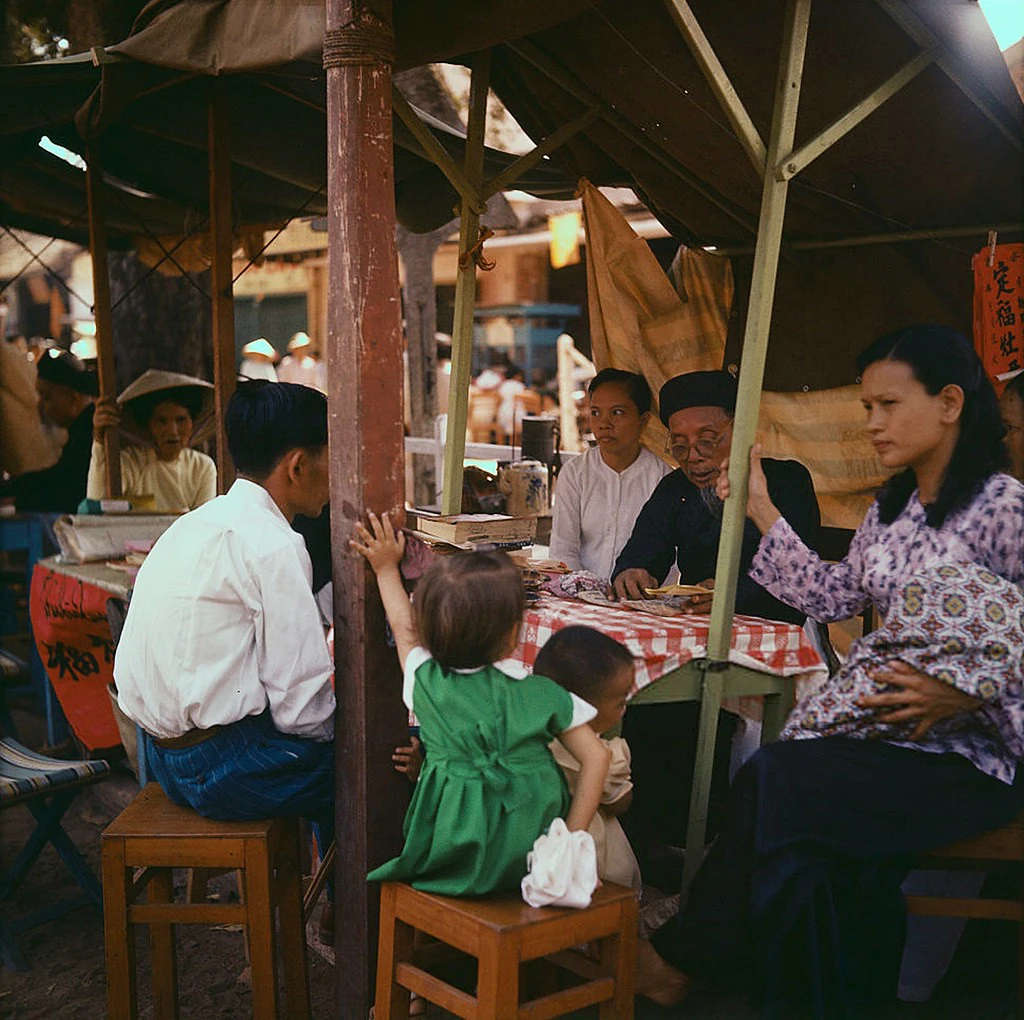
Vietnam is often described as one of the least formally religious countries: the 2019 Census recorded over 86% of citizens with no official religious affiliation, while Pew Research in 2024 found about half of adults identify as having no religion. Yet, everyday spiritual practices remain deeply woven into Vietnamese life. Not heavy doctrines or weekly sermons, but small practices that offer a glimpse into tomorrow’s fortunes, romances, and even cash flow. Fortune-telling (bói toán) doesn’t have to be a grand religion but an everyday spirituality, woven into conversations as lightly as asking about the weather.
Below are 4 ways of fortune-telling that offer its own window into Vietnam’s everyday spirituality.
Palm Reading: The Future is Literally in Your Hand
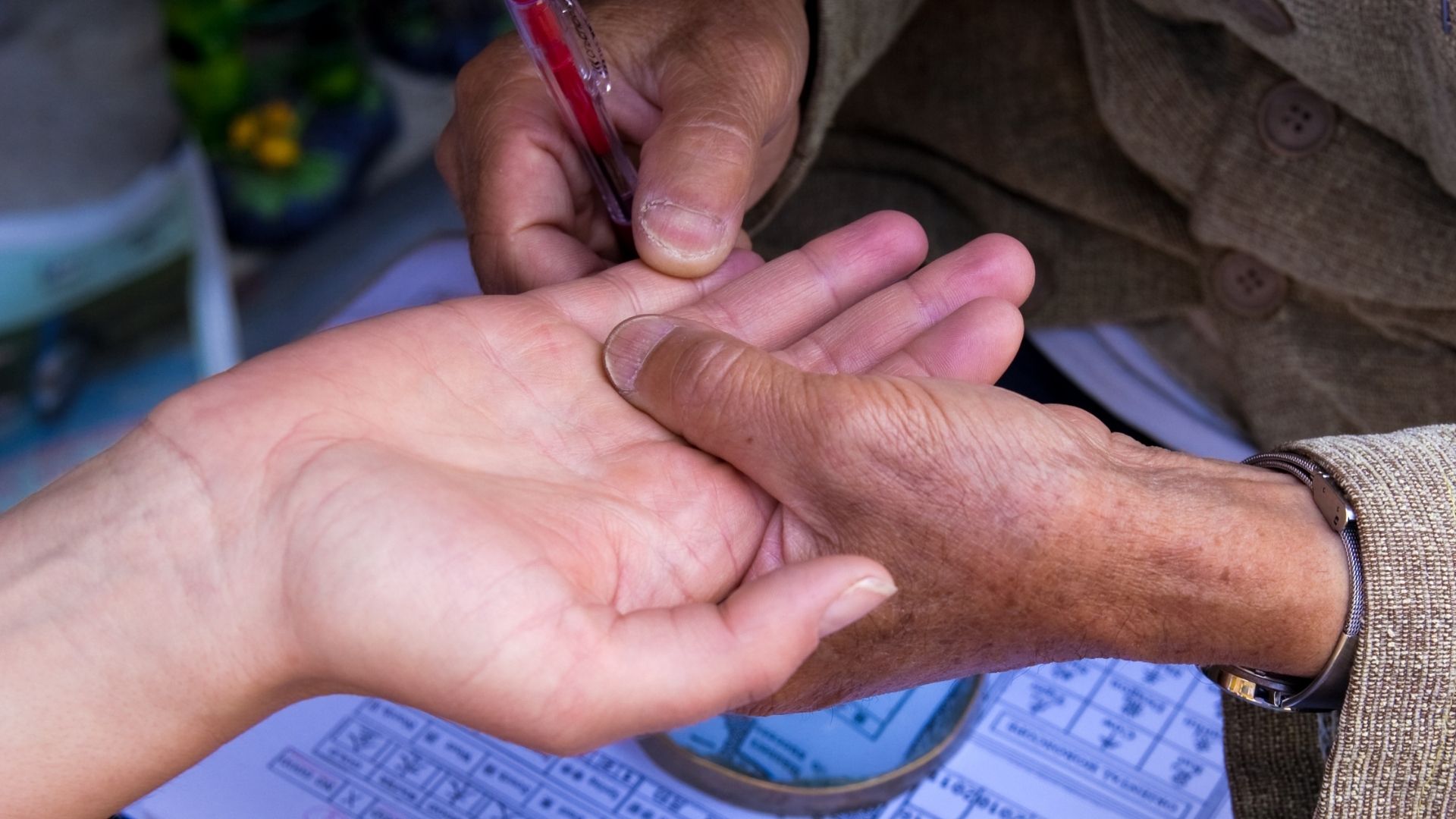
Open your palm and let someone trace the life line, the heart line, the fate line. Palm reading (xem chỉ tay) is one of the most popular forms of bói toán as it requires no tool but your hands, which is almost always available.
There’s a simple rule: nam tả nữ hữu—men should be read on the left hand, women on the right. But another school of thought suggests that one hand represents what “heaven” or fate has assigned to you, while the other, often the dominant hand, reveals what you’ve made of your life through choices and effort. In that logic, sex and gender matter less than the interplay between destiny and agency.
A long life line might be read as good health, a well-defined heart line as abundance in romance. And if the lines appear troubling, fortune-tellers often soften their interpretations, because no one wants to walk away convinced that their life will be short and loveless.
People approach palm readings with different attitudes. Often, good news is embraced as motivation, while bad news is brushed off with a shrug and a reminder to trust in science rather than superstition.
Palm reading shows the Vietnamese knack for weaving faith into the everyday body. Your own hands become scriptures, reminding you that destiny is literally in your hand.
Bói Kiều: Poetry as Oracle
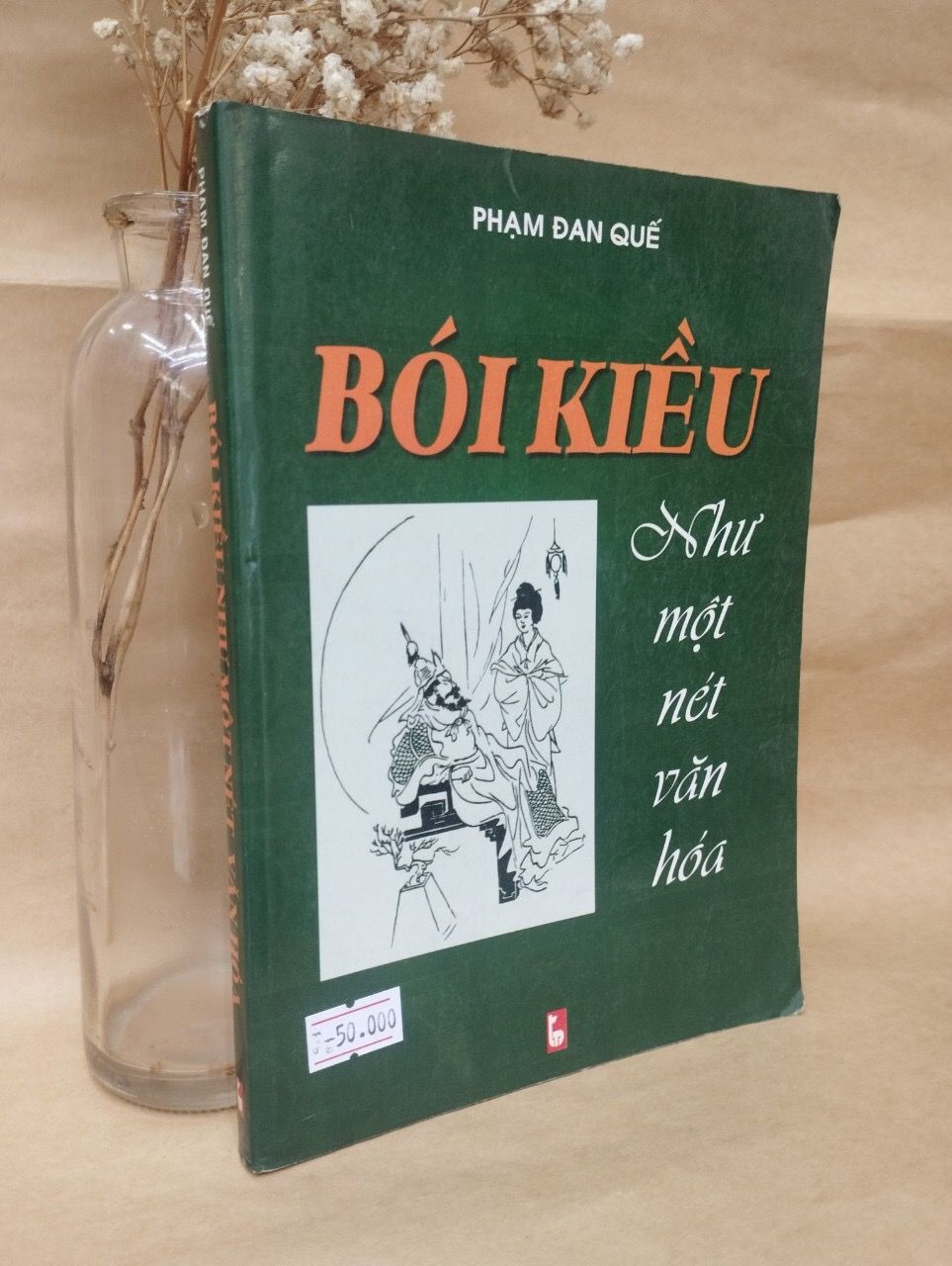
For centuries, Nguyễn Du’s Truyện Kiều (The Tales of Kieu) has been more than a literary masterpiece. It is also a spiritual compass. Unlike other forms of fortune-telling, bói Kiều (fortune-telling with a book of Kiều) has no fixed rules except the ones you decide. To some people, it is mostly a solitary act: you read it for yourself, not for others.
In some Vietnamese household, a dedicated book of Kiều is set aside exclusively for this purpose, placed on the altar and absorbs incense smoke through the years. These books are often old, sometimes handed down through generations, giving them an aura of sanctity beyond ordinary copies of the poem.
Some people open the book on fixed days each month, others only when faced with an important decision or an uneasy feeling. After a short prayer (khấn), the seeker opens the book and interprets either the first two lines on the left page or the last two lines on the right page. To know what lies ahead also requires literary skill: one must understand the prose, catch its nuances, and interpret the verses in light of one’s own situation.
In the end, bói Kiều is less about foretelling destiny and more about self-assurance. A positive line brings ease of mind, a troubling one offers time to prepare. Either way, the reader finds meaning in the poetry, turning literature into both mirror and guide.
Thái Ất Astrology Calendar: When Destiny Fits on a Sheet of Paper
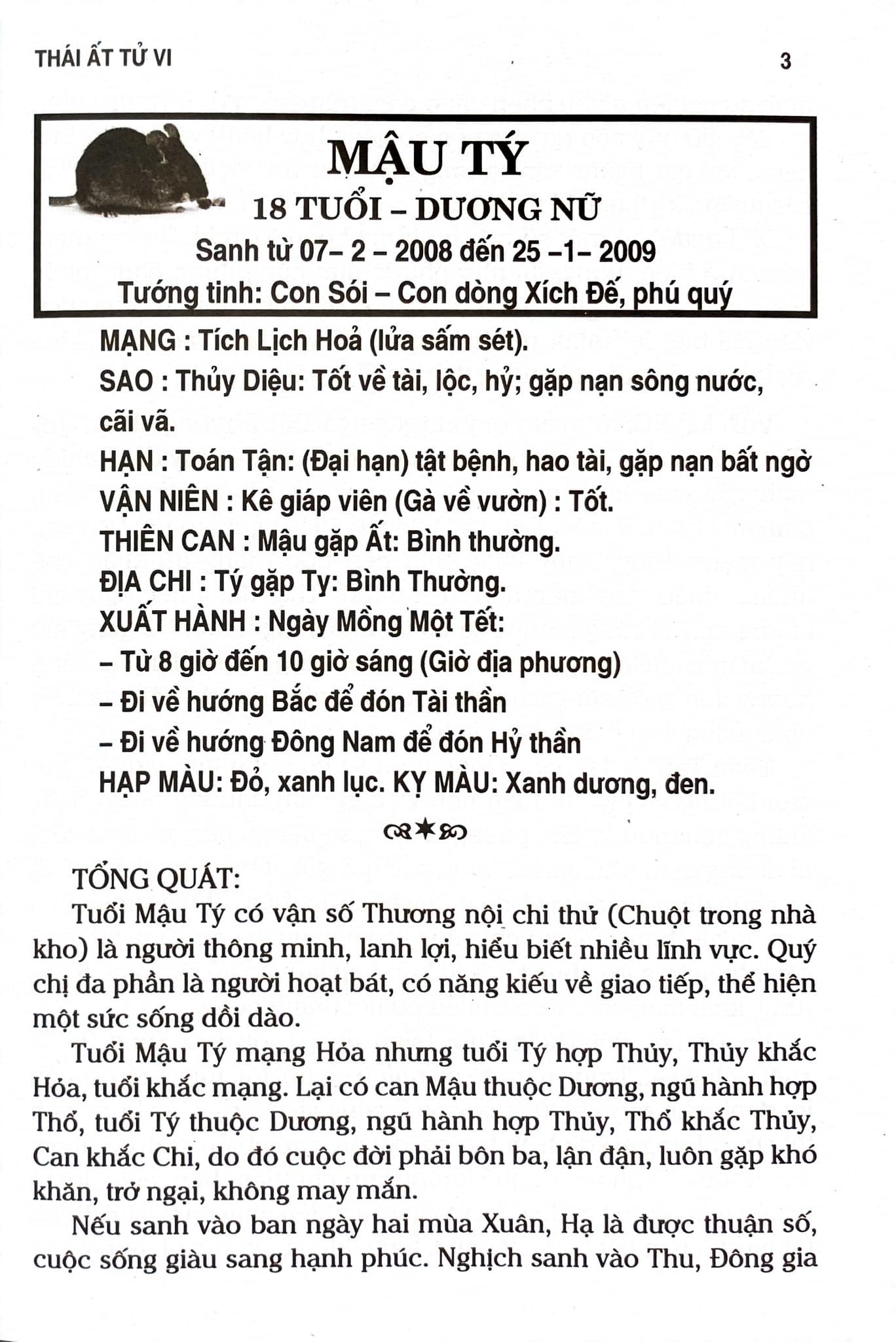
If palm reading and Bói Kiều feel improvised, the lịch Thái Ất Tử Vi (Tai Yi Astrology Calendar) represents a more systematic approach.
This calendar is more like a page from a larger book of Vietnamese astrology. When Vietnamese visit the pagoda on the first day of the Lunar New Year, they would receive a piece of paper designated to their horoscope. For example, someone born in 2000, belonging to the zodiac sign Canh Thìn (Metal Dragon), would look for the paper with their zodiac name, age, and gender. On that single sheet, the entire year’s fortune is laid out, from the first lunar month (tháng Giêng) to the twelfth (tháng Chạp). Each month carries a prediction, sometimes auspicious, sometimes cautionary. Yet the language is often deliberately ambiguous. A note advising someone to “check on their health,” for instance, reflects not only the concerns of that age group but also serves as a gentle reminder.
This practice illustrates how bói toán isn’t treated as destiny carved in stone, but as a way to reflect on life while hoping for luck. It echoes the old saying:
Số cô có mẹ có cha
Mẹ cô đàn bà cha cô đàn ông.
(Your fate has both a mother and a dad,
A mother that’s woman, a father that’s man.)
A reminder that destiny often sounds obvious, yet people still find meaning in its telling. The calendar provides a sense of order. It offers guidance, “better safe than sorry”, without demanding loyalty to a larger religious institution.
Playing Cards: Fortune in A Shuffle
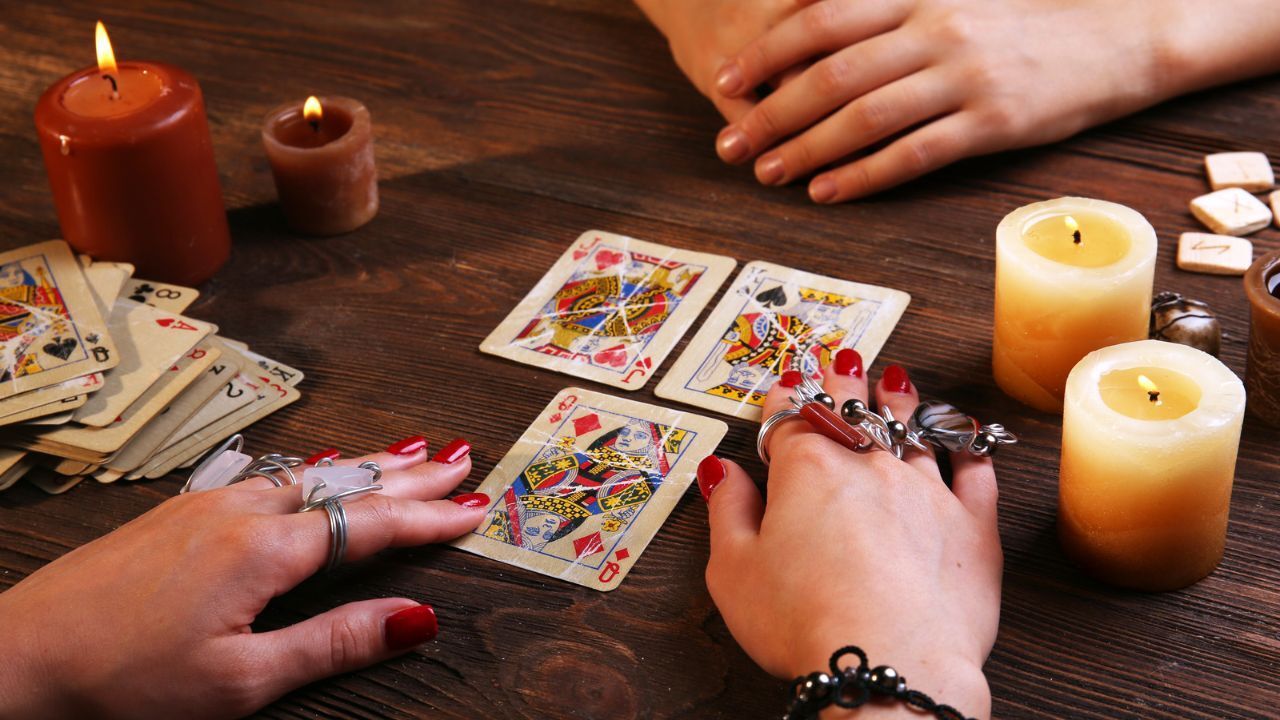
Imported by the French from France and China, the humble deck of 52 cards (excluding the two Poker cards) has long since been repurposed into bói bài tây (fortune-telling with Western playing cards). In the South, Vietnamese call them bài tây or bài tiến lên, while in the North they’re more commonly known as bài tú (tú-lơ-khơ). What was once only a pastime around the table has also become a tool for peeking into destiny.
When shuffled for fortune-telling, the practice itself varies. Some use a full deck of 54, jokers included; others set aside the poker cards and even halve the deck, depending on the kind of question being asked: love, money, career, or health. The draw then becomes an intimate negotiation with chance: spades often suggest troubles, hearts as romance, diamonds as money, and clubs as obstacles.
For many, it’s an inexpensive form of entertainment. For the price of a coffee, you can sit with a fortune-teller who uses the same cards as your weekend game of tiến lên.
It’s another example of how spirituality piggybacks on the mundane.
More than Fortune, Less than A Religion
Taken together, these practices reveal a uniquely Vietnamese way of holding faith. It lives somewhere in between accessibility and flexibility, and rooted in the everyday.
Palm lines, poetry verses, astrology dates, and playing cards are not binding destinies. They are prompts for reflection, gentle nudges to act or to wait, to take courage or to be cautious.
In the end, fortune-telling is “more than fortune, less than a religion”: a cultural habit of seeking reassurance from the familiar, and a quiet way to make sense of the uncertain.
